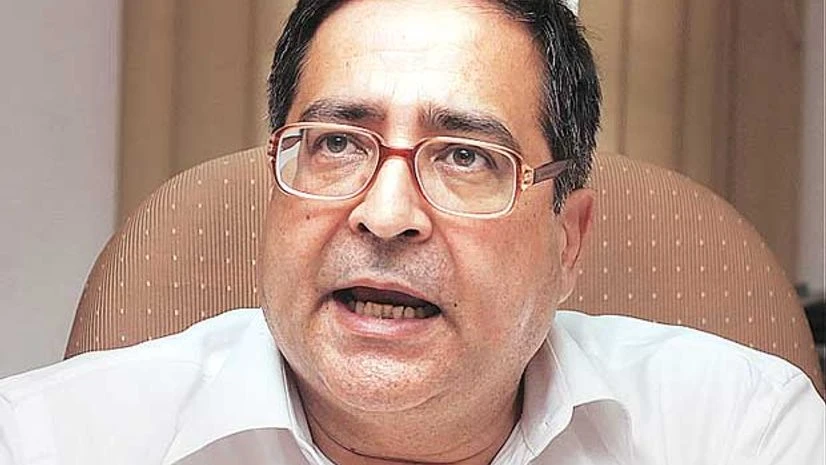There are projections that demonetisation would significantly impact the third quarter economic growth numbers. T C A ANANT, the government's chief statistician, tells Dilasha Seth and Indivjal Dhasmana that such projections are premature. Edited excerpts:
The GDP (gross domestic product) growth of 7.3% for the second quarter (July-September) of the current financial year basically came from agriculture, construction and government-backed expenditure. Does this show inherent weakness in the economy?
I will not use the word weakness. If you look at the growth rate of all sectors, these are much better than the figures of, say, two or three years ago. Growth has been improving in the new series (data). But, compared to last year, growth in a number of sectors, except for agriculture and a few others, has been lower in the second quarter, compared to the first one.
There are two elements to it. One is that last year, we were getting the benefit of a lower base. Because last year's growth was higher, it became a little more difficult this year. The second factor is that the wholesale price index (rise) has bottomed out. WPI was into negative territory and has now edged into positive territory. Growth has basically flattened out. If you look at GVA (gross value added) growth in the first half of the current financial year, it was 7.2%; the previous year, too, it was 7.2%.
But, GVA in the second quarter was 7.1%, against 7.3% in the first quarter.
Also Read
There is some difference but, at this moment, I will not read this as a major change in trend.
Also, gross fixed capital formation, denoting investment, has contracted in Q2, as well as Q1.
It has certainly declined. It is there in our data. Investment, at least at this stage, has not been picking up in terms of output of capital goods. This could be seen from even capital goods production figures in the IIP (Index of Industrial Production). There is still considerable softness there. We will get deeper understanding later in terms of its components, in terms of private and public investment.
How do you see demonetisation affecting economic growth in the third quarter and also possibly in the fourth quarter? Cash has shrunk in the economy and various experts are projecting sharp slowing in GDP growth.
At the moment, there is very little data on the basis of which you can make these assessments. People are making assumptions and projecting growth for the third quarter. I don't want to do that because, then, it will be my assumptions versus your assumptions. That is not a debate I am going to get into. There are some preliminary reports on rabi sowing and so on; they don't seem to show any decline there.
You can draw your inferences but demonetisation is a very complex thing and I'd advise people to wait until a lot more data comes in. Full data on the entire year would come on the last working day of May.
Suppose Q3 shows a decline because of demonetisation and you come out with advance estimates using the IIP of October and other data available till December. Won't the advance estimates show an upward bias?
We will give you two advance estimates. One will be on January 7 or the previous working day if it is a holiday. Then, we will give you another advance estimate with the third quarterly data on February 28. This would be statistically equivalent to the advance estimates we used to come out on February 7. In fact, it will be marginally better than the earlier February 7 data because we will use IIP data, not core sector data, and companies' results would have come by then.
If there is a change in the first advance estimate and the second one, will it have major implications for the Budget?
It is too early for me to say there are changes in the first advance estimate and the second one.
Suppose there is?
Suppose is a hypothetical word. The Budget has nothing much to do with advance estimates because it is a receipt of money and its allocation. That is based more on the revenue model of the government; it is only partially related to GDP. What had happened was that there was a practice of giving the fiscal deficit as a percentage of GDP in the 1990s. In response to a then request from the finance ministry, we started giving advance estimates. We used to give these on February 7 because that was the maximum we could wait in order to be included in the Budget and the Economic Survey. Now, as the government wants to present the Budget on February 1, we have indicated the date as January 7 or the previous working day if it falls on a holiday.

)
